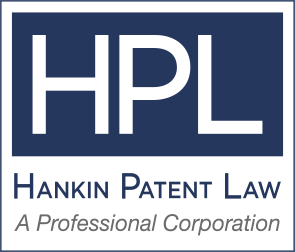US Trade Secret Attorneys in Los Angeles & Orange County

Many businesses prefer to protect their Intellectual Property by keeping them as trade secrets. Trade secrets are generally protected through employee agreements and confidentiality obligations, as well as keeping outsiders out. A company that develops a process or a formula (for example, the recipes for Coca Cola or Kentucky Fried Chicken) keeps it from being used by competitors by obtaining agreements from employees and vendors not to disclose the process or formula to persons outside those having an actual “need to know” within the company. Trade secrets require no filing with a state or federal government agency. Because no filing is required, it does not expire; thus, a trade secret may last forever (indeed the formula for Coca-Cola has been kept as a Trade Secret for more than a century).
The disadvantage of the law of trade secrets is that it does not prohibit someone from “reverse engineering” a product, provided that they did not obtain information about the product from someone who was contractually obligated not to disclose the secret. For example, the law of trade secrets would not prohibit a competitor from discovering the Kentucky Fried Chicken recipe through trial and error (though, no one yet has). Other Intellectual Property tools, however, may prevent a competitor from unfairly using a reverse-engineered trade secret.
Sometimes, when “know-how” or certain methods are not eligible for Patent Protection (sometimes because the Client has waited too long to seek protection), keeping the technology as a Trade Secret is an excellent alternative (and, sometimes, the only way to protect that technology or “know-how”). Also, sometimes, manufacturers do not want to put a product or product enhancement out into the supply chain, where it will be copied, so they keep the enhancement (or the know-how) as a trade secret. While a Patent would make clearer exactly what is being protected, by keeping the information as a trade secret, the owner can keep the protection for longer than the 20 years afforded to Patent Owners, thus squeezing more value out of the technology than if they had filed a Patent Application on it.
Hankin Patent Law, APC advises Clients on whether protecting their Intellectual Property by relying on trade secret law is recommended and/or advantageous for the business, as opposed to preparing and filing a Patent Application, which will require the Client to teach the world how to practice its invention, and through doing so, will lose any and all protection, after the Patent goes Abandoned.
The Importance of Trade Secrets
Information, on its own, is not always protectable by patents, trademarks, or copyrights. This is often when trade secrets are most valuable, provided that the information cannot be reverse-engineered by a competitor through legal means. A trade secret allows you to protect valuable information for as long as it does not get disclosed and does not require the Client to take any formal steps to register that trade secret with the government or any other entity.
What Qualifies as a Trade Secret?
Improvements of many kinds can be afforded trade secret protection, from processes, formulae, patterns, know-how, and collections of information. As long as the trade secret gives its controller or owner a competitive advantage and is hidden from the public or others with reasonable effort, then that expertise may be afforded trade secret status.
What “Reasonable Efforts” Can BeTaken to Protect Trade Secrets
Reasonable efforts require exactly what it sounds like, that you take reasonable efforts to protect the trade secret information. You are more than welcome, however, to exercise extreme efforts to protect your trade secrets because ultimately the goal of a trade secret is to make sure nobody figures out what the trade secret exactly is.
A common reasonable effort is protecting computers that contain, or have access to, the trade secret. This is relatively easy to do by use of passwords that must be changed frequently. Because it is so easy, not doing so could certainly make it look like you are not taking any steps to protect the trade secret. Similarly, if the trade secret resides on a physical medium, such as paper, then that physical medium should be locked away when not in use. Because of the inherent risks in transmitting information over the Internet, it is usually a good idea not to transmit trade secrets over the Internet. If you must do so, then encrypting that data or information is a best practice.
Ultimately, what is reasonable, what is excessive, and what is simply not enough will depend on the specific trade secret to be protected and all the factors and considerations surrounding it. An audit of your trade secret procedures can help you identify whether or not you are taking sufficient reasonable efforts, and what else you can and should be doing to protect your trade secrets.
Trade Secrets vs Patents? Which is Right for You?
There are advantages and disadvantages to trade secrets compared to patents.
Advantages of Patent Protection vs Trade Secrets
A U.S. Patent will protect a claimed invention from being practiced by anybody in the United States for a limited time. Even if somebody were to reverse engineer a patent-protected invention, and understand exactly how it works, they may not legally be able to make, use, sell, offer for sale, or import into the United States that invention. This can potentially be very powerful protection, but it does have its drawbacks.
Limitations of Patent Protection vs Trade Secrets
A patent has a limited-term, after which anybody is free to practice that which is taught by the patent. Additionally, just because you file a patent application does not guarantee that you will eventually receive a patent. This is because patent applications undergo rigorous examination by the U.S. Patent Office in order to determine whether the invention is patentable or not. This process of having the patent application prepared and examined by the Patent Office can be expensive and usually takes several years. The patent application is also intended to teach your competitors exactly what you are doing and how to do it, which they are prohibited from doing until your Patent expires.
A trade secret, on the other hand, only protects you from situations where the trade secret is unfairly stolen. However, there is no governmental examination of the trade secret, and the trade secret lasts as long as nobody else figures it out.
The decision of whether to pursue trade secret or patent based protection is highly technical and should take a myriad of factors into consideration. Your trade secret attorney should be well versed in both trade secret and patent law in order to provide you with the best guidance possible.
How Trade Secrets Get Stolen
One of the most common ways a trade secret is stolen Is by a disgruntled former employee taking as much as they can with them when they leave the company. This is one reason that, from a practical standpoint, it is a best practice to limit who has access to the trade secret, even if there was no reasonable effort requirement to keep the trade secret a secret. A trade secret cannot be stolen by somebody who does not have access to it.
If a trade secret is stolen by a disgruntled employee, it may be possible to retain the trade secret, but if the trade secrets somehow become public knowledge, then the trade secret is no longer protectable. You may have certain legal recourse that you can take, but you cannot take information away from the public.
The Impact of Trade Secret Theft
If a trade secret is stolen, it can have a severe impact on the owner of the trade secret. For example, if the Coca-Cola trade secret recipe were to be stolen, illegally distributed, could be replicated exactly, and mass-produced by competitors, then the only thing differentiating Coca-Cola from the rest of the market would be its branding and brand image. It does not take a big leap in logic to reach the conclusion That Coca-Cola sales would likely take a hit.
What to Do About Stolen Trade Secrets
If a trade secret is stolen, it is absolutely critical to act the instant that you become aware of the theft. If you act quickly enough, there are things you can do to mitigate the damage. For example, if you suspect that a disgruntled former employee has stolen a trade secret and is taking that trade secret to a competitor, it may be a good idea to make sure that the competitor is put on notice immediately that the trade secret is, in fact, a trade secret. In many cases, competitors do not want to get involved in a legal dispute involving trade secrets. There are also stronger measures available such as filing a complaint and requesting an injunction to prevent the spread of the trade secret. Regardless of what route you think should be taken, it can be a complicated path for which you should hire a trade secret attorney to guide you and a misstep might actually cause you to be on the receiving end of a lawsuit.
More importantly, being proactive about preventing the theft of trade secrets can be infinitely more valuable by avoiding complications in the first place. A trade secret audit by an experienced trade secrets attorney can put you in the best position to prevent theft of trade secrets. By ensuring that your procedures are sufficient to protect the trade secret, even when there is a theft of that trade secret, if you had a trade secrets attorney conduct a trade secret audit and made appropriate changes to your procedures, that will likely increase your chances of protecting your trade secret through legal means, such as litigation, and obtaining a preliminary injunction or even possibly a temporary restraining order.
Protecting Your Trade Secrets
If you have developed a process or formula that you want to keep others from using, you need to decide whether to protect that development through the use of a patent or as a trade secret. At Hankin Patent Law, APC we have extensive experience in trade secret and patent law issues and can advise you regarding the best approach to protecting your inventions and trade secrets.
Contact the Trade Secrets Lawyers at Hankin Patent Law, APC Today!
Attorney Marc Hankin has been protecting the inventions of his Clients through Patents and trade secret protection for more than three decades and the other Registered Patent Attorneys at Hankin Patent Law, APC are also well versed in when to file a Patent Application and when to employ trade secret protections to keep technology and know-how best protected.
To arrange for an Intellectual Property audit or to learn more about how you can protect your Intellectual Property by keeping them as trade secrets, contact Hankin Patent Law, APC.

